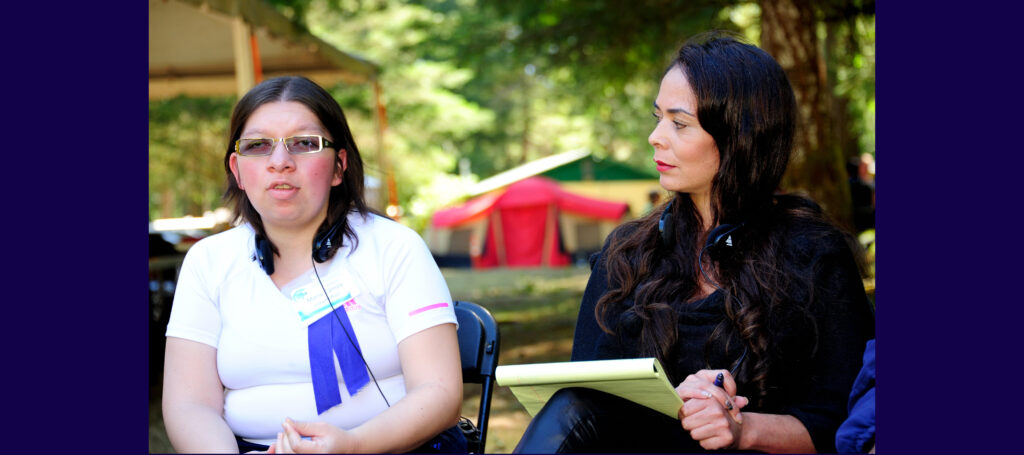In my experiences traveling in different countries it went well for me because they gave me the support that I required such as Spanish translation in events and it is good that I have had the option to be accompanied during other processes. It has also been interesting to learn from other cultures and to be in contact with their daily life, Maria Camila Lozano Ruiz, rights activists with intellectual disability from Columbia.
You might have many questions about how to adequately support participants with intellectual disabilities (ID) on an exchange program, but it might just be a question of treating them like any other participant bringing along a personal attendant or personal assistant.
There are four ways of providing personal assistance to a participant with disabilities, which can be identified as the Informal Model, the Mentorship Model, the Natural Supports Model and the Paid Formal Model. It is likely that most programs available to everyone will use a combination of the Informal Model and the Paid Formal Model, while disability-specific exchange organizers might prefer the Natural Supports model.
Informal Model
The assistant volunteers on the spur of the moment as they see that support is needed, without having a formal sense of commitment to the person in need and without having an idea beforehand that they might have to provide support.
This is the most common experience that we have seen for relatively independent people with disabilities who occasionally get informal supports while overseas. We also see this with nondisabled people.
Informal support can include things like giving directions, lifting someone with a physical disability over a step, or reading a printed document for someone who is blind.
Mentorship Model
Another compelling variation is the mentorship model, in which students with and without ID are grouped together and assigned a project on which they must collaborate. The mentorship model is unique in that it places the sense of obligation on both sides, rather than just with the nondisabled students. This model has been used in group projects between students with and without ID like a research project, in which students with and without ID investigated social attitudes on campus. Students without disabilities carried out some of the more intellectually intensive work such as report writing, while the students with ID completed fieldwork such as surveying and asking questions. This could be applied to exchange programs with a volunteer or research component.
Natural Supports Model
The assistant does not have a formal responsibility and is not paid, but agrees to be available and has an idea that they might have to provide support. They might get a discount on the program fees or some other recognition.
Where students without disabilities might be expected to provide support, they should be made aware of this throughout the process from application to the beginning of the program. Some experiences have shown that, while these interactions between participants with and without disabilities can be beneficial for both, support may not happen organically. Establish clear expectations so that participants with disabilities are adequately supported and nondisabled participants don’t feel like the need to help out is taking away from their own independent exchange experience.
The Paid Formal Model
The assistant has a formal responsibility towards the person in need, a clear sense that they will have to provide support and they will likely have to sign an agreement about their role and responsibility. They are often reimbursed.
One of the more obvious examples of this is a sign language interpreter. Other examples may include a personal care attendant, a sighted guide or a scribe.
The formal paid supports model would likely be the best option for most short-term programs available to all that an individual with ID might join.
In this way, the personal assistant would be like an ASL interpreter or a sighted guide, assisting the person to understand the content. The program’s role would simply be to support the PA by offering materials in plain language and conveying information with visual as well as written forms. Some programs might provide support with funding and housing.
Getting Started
- Reach out to your campus Comprehensive Transition Program (CTP) and disability services office about funding a PA. Learn more about CTPs in our best practices article.
- Produce program materials in plain language.
- Offer information such as timelines, summaries of key details such as people that students will meet, or sites that they will visit.
- Make sure that the student and their PA receive program materials in advance.
Have you included personal assistants for people with ID on your exchange program? Tell us which of these models you utilized!
© Mobility International USA 2025
All rights reserved.
Copying, reproducing, or reprinting of materials is prohibited without express written permission of MIUSA.
